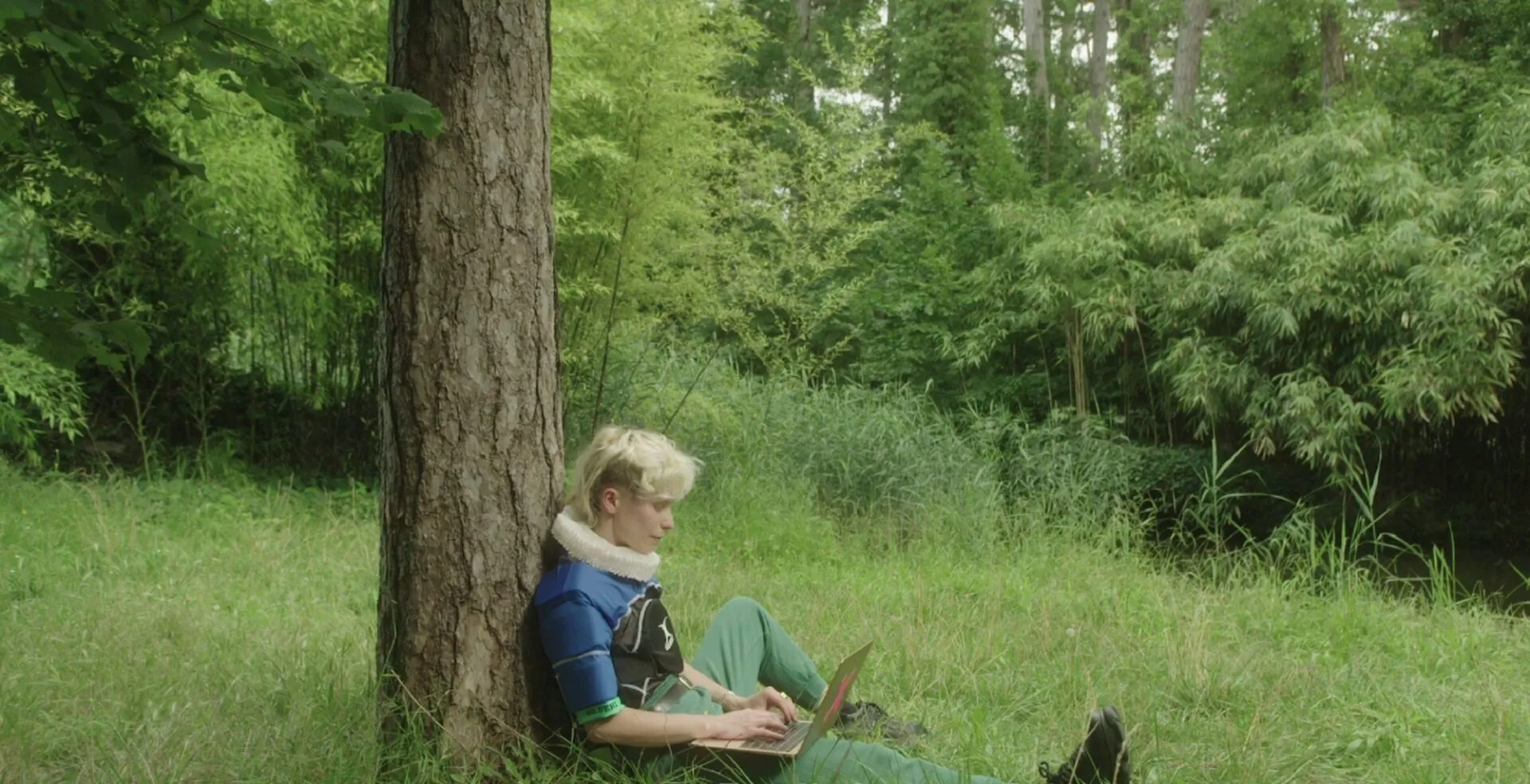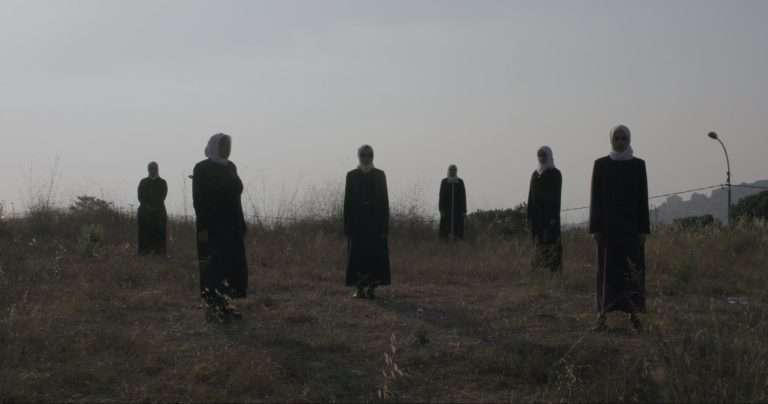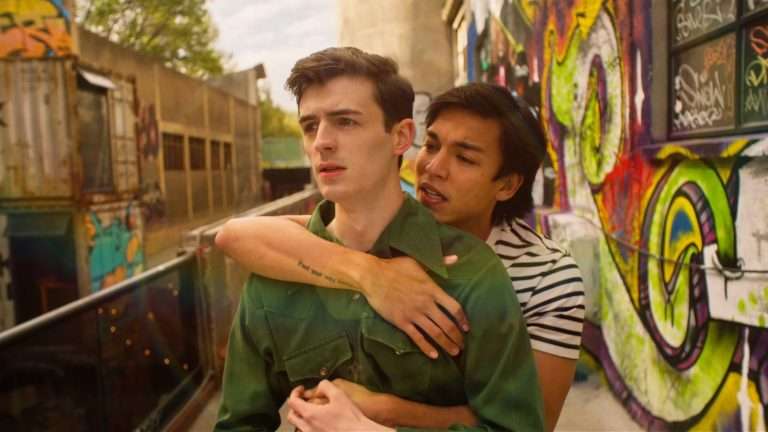Paul B. Preciado’s documentary Orlando, My Political Biography begins with something akin to a grievance against Virginia Woolf’s eponymous 1928 classic. The text remains a celebrated ode to fluidity, but discomfort with the aristocratic semblance of Woolf’s character is shared in the film’s very opening as one of the film’s many narrators/Orlandos, emphasizes the sheer risk it takes in asserting oneself in the process of transition.
Throughout the film, Preciado acknowledges the text’s symbiotic ties with the trans community but also updates the missing blanks in the text. Wherever the text has historically elided critical concerns, ranging from psychiatry to paperwork, the filmmaker swoops in, not necessarily by way of an arrogant course-correction but expanding Orlando’s scope of enquiry.
Preciado employs a playful, free and wide-ranging mode of narration that shifts through a panoply of trans voices, across age, ethnicity and geography, reciting passages from the novel while articulating their personal histories within direct-address monologues which are designed as a correspondence with Woolf. Every narrator is adamant and clear sighted in how they perceive their trans-ness and how they would like it to be interpreted, constantly warding off the historically accumulated, structurally placed prejudices and misjudging.
In this process, there might be repetition but always an unshakeable insistence in reaffirming their philosophies that oppose all binaristically gendered understanding. Paul, one of the Orlandos, emphasises they do not want to choose one thing or the other, preferring a more “explosive mix.”
The film embodies this explosive mix in a meta-textual style that inventively tweaks settings and backgrounds to accommodate a generously inclusive tableaux of trans individuals, while being ever-mindful of histories of erasure that precede them. Another narrator reiterates his desire to define himself as not just a boy but a trans boy, retaining his history, not rubbing it off.
Profanity fuses headily with a density of ideas in the film, consciously seeking techniques and methods for encompassing a vastness of political debate around the conception and imagination of the trans figure. How does the trans man or woman find a companionship or intimacy with someone that is respectful, regards their history as valid to their present identity and builds a relationship in the light of that? Orlando, My Political Biography ventures even into a unique and nuanced reflection on this front as well.

The psychiatrist’s imposition of gender binary upon a trans body is unequivocally rejected. The very discourse of sexual binary finds little place in trans vocabulary that populate the film. One of the Orlandos eloquently sums up gender transition as not being a passage from masculinity to femininity or vice versa, as is commonly understood, rather experiencing the world through a different political position. Amidst these cerebrally incendiary, verbose sections of the film, Preciado never keeps humour and the sense of vibrant joy too far behind.
A waiting room at the psychiatrist’s turns into a delightful club dance anthem for pharmaco-liberation. The loneliness of being denied hormonal drugs, which solely depended on a psychiatric diagnosis that was anyway dismissive and reductive, is gleefully subverted into a foot tapping number full of electric, joyous defiance of all constructs.
Continually, the film establishes a kinship with Woolf’s life and her text, recuperating the elements of poetry, sensuous love for nature, exile while reinstating a trans journey of metamorphosis, through acts of becoming the other with the passage of time. It bravely probes into Orlando’s colonial construction, questioning why the transition is affected particularly in a colony.
Therefore, the viewer is made vigilant in expunging any outmoded, imperial whitewashing of queer legacy, witnessing instead a compendium of cross-cultural voices that confront institutional apathy and systemic silencing. How the administrative appendages that bulldoze trans identities into a political limbo of non-existence also comes under the film’s caustic gaze.
This is a film that vigorously rails against “political fictions of manhood and womanhood” that have become normalised through “repetition and violence.” Preciado operates upon these fictions as he threads the necessity of surviving violence with chronicling history. These operations are woven with the pronounced right to edit one’s life as one pleases, passing the baton onto kids who will shape the policies of tomorrow.
The film ignites an affirmative potential for self-authorship, writing political legitimacy and currency into the trans community in a dazzlingly hopeful coda. This is a work of restlessly provocative artist, who loads each scene with a challenging, reconstructive ambition, while bursting the door open for future trans filmmaking.






![The Art of Political Murder [2020] Review – An Investigative Account of a High-Profile Murder Trial](https://79468c92.delivery.rocketcdn.me/wp-content/uploads/2021/02/The-Art-of-Political-Murder-2020-768x432.jpg)
![I Am Mother Netflix [2019] Review – A Slick but Underwhelming AI-Themed Thriller](https://79468c92.delivery.rocketcdn.me/wp-content/uploads/2019/06/I-Am-Mother-Netflix-highonfilms-768x448.jpg)
![The Farewell [2019] Review: A Comforting Cinema with a harsh tang](https://79468c92.delivery.rocketcdn.me/wp-content/uploads/2019/11/The-Farewell-768x432.jpg)